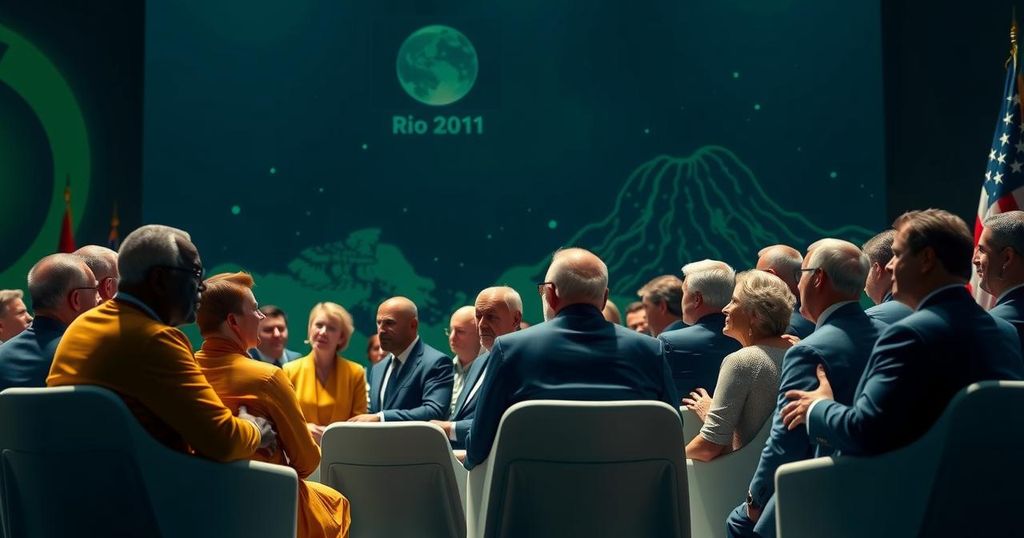G20 Leaders Address Climate Change During Rio Summit’s Final Day

On the final day of the Rio summit, G20 leaders focused on tackling climate change, recognizing the urgency due to the world potentially experiencing its warmest year. A joint statement from the summit called for increasing climate finance and establishing a new financial goal for supporting developing nations. Additionally, a commitment was made to create a legally binding treaty on plastic pollution by 2024, highlighting the G20’s pivotal role in combating environmental issues.
On the final day of the Rio summit, G20 leaders convened to tackle the pressing issue of climate change amidst growing global temperatures. With concerns that the world may witness its warmest year on record, they are keen to bolster commitments prior to Donald Trump’s anticipated return to U.S. presidential office in January, which may threaten existing climate agreements. The summit facilitated discussions aimed at enhancing climate finance and promoting a transition to sustainable energy solutions. Leaders acknowledged the urgent need for robust climate financing, calling for a swift shift from billions to trillions of dollars to effectively respond to climate challenges. In a joint statement issued on Monday, the G20 expressed the necessity for COP29 negotiators to establish a new financial target, aimed particularly at supporting developing nations in climate adaptation efforts. Although the intention for a financial goal of at least $1 trillion annually was recognized, specific commitments and resolutions remained elusive in the final documentation. The ongoing debate revolves around the responsibility of contributions from wealthier developing countries, such as China, and how to incorporate them into funding measures. While developed nations advocate for a broader contributor base, countries like Brazil have resisted expanding the obligation beyond primarily developed nations, who have historically been the leading contributors to global emissions. Additionally, G20 leaders pledged to develop a legally binding treaty to significantly curb plastic pollution by the close of 2024. The commitment to stronger measures against plastic waste complements their discussions on climate, as they seek collective solutions to environmental crises. The G20, representing 85% of the global economy and over three-quarters of climate-warming emissions, is pivotal in addressing and mitigating the effects of climate change on a global scale.
The G20 summit held in Rio de Janeiro spotlighted the increasing urgency of climate change amidst escalating global temperatures. With the return of Donald Trump to the U.S. presidency on the horizon, there are significant concerns regarding potential setbacks in international climate agreements, particularly the Paris Agreement. The G20 countries, which comprise some of the largest economies and major contributors to greenhouse gas emissions, are recognized as key actors in facilitating substantial financial support for global climate change initiatives, particularly for developing nations.
In conclusion, the G20 summit in Rio reiterated the importance of collaborative international efforts to combat climate change. As global temperatures rise, leaders emphasized the need for increased climate financing and a clear financial commitment from developed nations to support poorer countries. Furthermore, by committing to a treaty on plastic pollution, the G20 solidified its role as a crucial player in addressing urgent environmental challenges and shaping a sustainable future.
Original Source: kathmandupost.com






